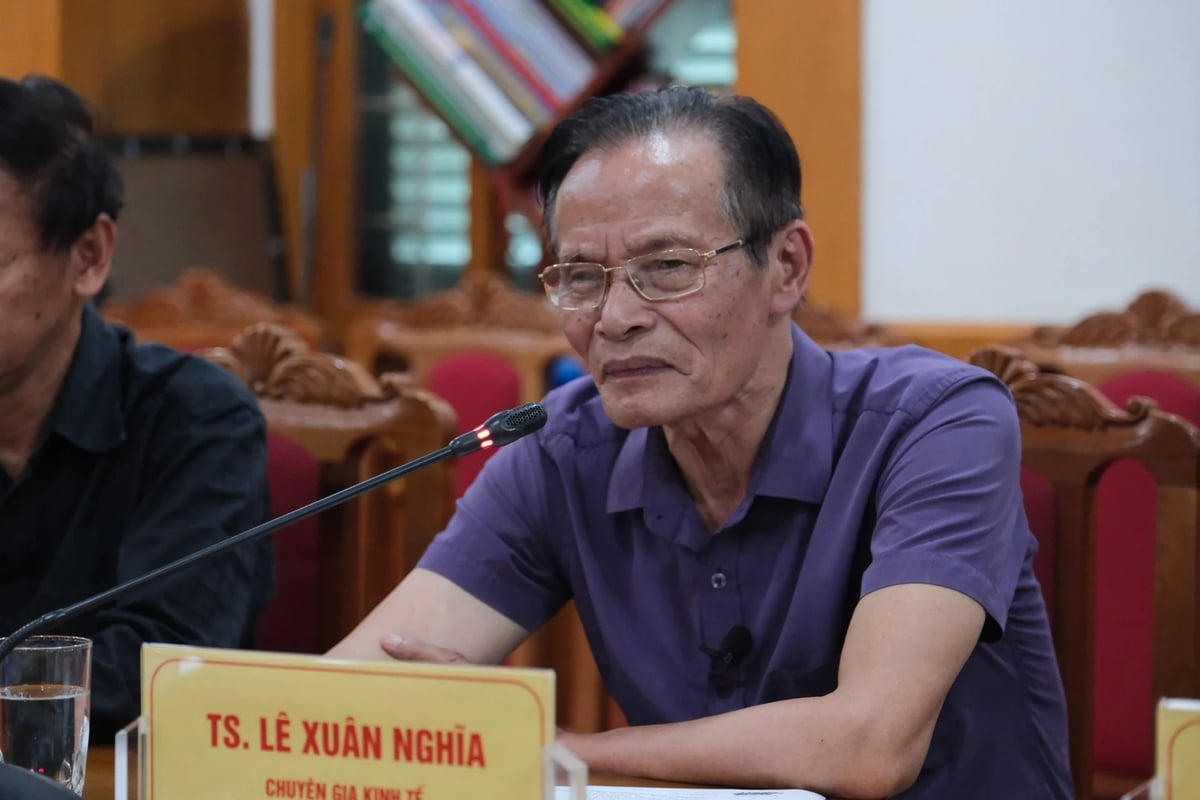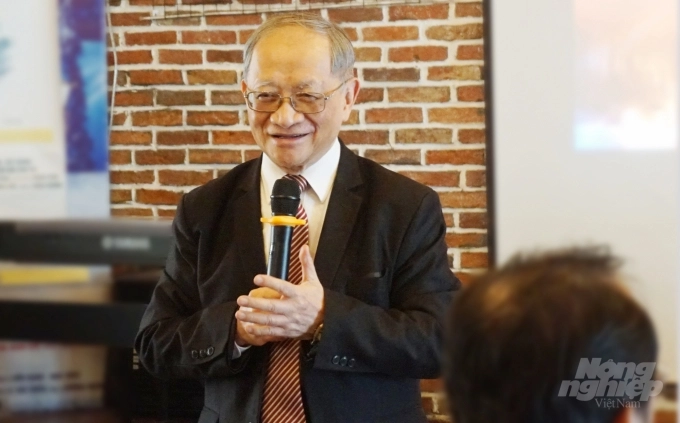November 24, 2025 | 14:44 GMT +7
November 24, 2025 | 14:44 GMT +7
Hotline: 0913.378.918
November 24, 2025 | 14:44 GMT +7
Hotline: 0913.378.918

Dr. Le Xuan Nghia. Photo: Tung Dinh.
First of all, regarding reciprocal tariffs, the latest tax policy of US President Donald Trump is understood to be that the US will tax the goods of other countries in the same way as other countries tax American goods according to the principle of fair trade.
However, this is only initial information, everything is waiting for the negotiation process, there may be appropriate adjustments according to the partnership between countries.
In the short term, several international agencies have forecast that global GDP could decrease by approximately 0.3%, while inflation may rise by 0.5% compared to previous scenarios. The main reason stems from President Donald Trump's policy of imposing high tariffs on goods from other countries. Such a move will almost certainly provoke retaliatory actions from many nations. At that point, the US's economy itself will also be significantly affected. According to projections, the US's GDP could shrink by 0.5%, and inflation may increase by 1% as a direct consequence of President Trump's trade policy.
As for Vietnam, it is certain that if the proposed retaliatory tariff rate of 46% is implemented, it will have a substantial impact on the economy. This is especially critical given the high degree of openness in Vietnam’s economy - its total import - export turnover is nearly double the GDP. Meanwhile, the United States has been one of Vietnam’s largest export markets for many years. I believe that President Trump’s tax policy will place considerable pressure on Vietnam’s goal of achieving 8% economic growth in 2025.
Nonetheless, from my personal perspective, in the long run, not only Vietnam but all countries must accept the principles and rules of fair trade. We must be proactive, ready, and flexible in adapting to reciprocal tariff issues, which is an inevitable global trend. In other words, if we impose tariffs on their goods, they will do the same to ours.
Only in this way can the implementation of international fair trade policies truly be fair. There should no longer be situations where European goods entering the US are taxed at only 2%, while US goods entering Europe are subject to a 10% tax.

Dr. Le Dang Doanh. Photo: Nguyen Thuy.
First and foremost, the United States has been Vietnam’s largest export market for many years. If a reciprocal tariffs rate of 46% is imposed, it is certain that our goods will no longer be able to compete in this market. Such an excessively high tariff rate would make it impossible for Vietnamese products to compete with those from countries that are only subject to tariffs of around 10%. This would severely impact our production and export activities and, in turn, negatively affect Vietnam’s GDP.
Therefore, I believe there are two urgent and critical tasks that must be undertaken immediately in response. The first is to enter negotiations with the United States in order to seek a reduction in tariffs on Vietnamese goods, ideally bringing them in line with those applied to other countries in the region such as Thailand and Malaysia. The second is to immediately develop a strategy to concentrate efforts on diversifying both export markets and product lines. This should be done in parallel with identifying and penetrating new markets in regions such as the Middle East, Africa, and South America.
It can be said that President Donald Trump’s trade policy poses a significant challenge. I hope that the entire political system will join forces to support the business community in overcoming this difficult period.
Translated by Kieu Chi

(VAN) The recent torrential downpours and unprecedented flooding in the Southern Central Coast are a highly unusual meteorological and hydrological event.

(VAN) The Southern Central Coast and Central Highlands regions have suffered massive agricultural losses, with over 80,000 hectares of rice and crops, alongside millions of livestock, being swept away, causing severe damage to farmer livelihoods.

(VAN) Trieu Son commune deploys a 'virtual assistant' to help residents complete administrative procedures.

(VAN) Applying green technology in rural water supply and sanitation helps improve resource efficiency, protect the environment, and enhance community living standards.

(VAN) Developing biosecure livestock production is the key that helps Tuyen Quang form linked chains in livestock production and build its brand in the market.

(VAN) During his bilateral activities in South Africa, Prime Minister Pham Minh Chinh welcomed Vice President of the South African Chamber of Commerce and Industry Neil Pollock.

(VAN) Prof. Dr. Hoang Van Cuong, National Assembly Deputy of the 14th and 15th terms, shares recent pioneering policy decisions.